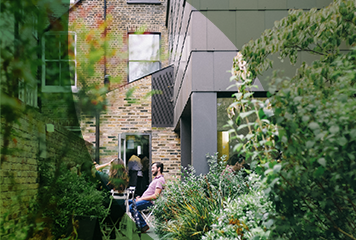This is a dilemma that many people face when it comes to residential property. Is it better to rent a property and so avoid the cost and hassle of maintenance, as well as retaining the flexibility of being able to move quickly? Or should you buy your home at the earliest opportunity and start to make your way up the housing ladder? Buying a house or flat will be the biggest financial decision most of us ever make, so it’s essential to get it right.
What are the pros of owning your home?
- Once the mortgage is paid off the property is yours, and you will no longer have to pay out to live somewhere. You also have the satisfaction and security of knowing that you are living in your own home, not a property owned by someone else.
- Your property will hopefully increase in value over time, adding to your assets and wealth.
- The equity in the property (its market value minus the remaining mortgage balance) can be used to help to buy a bigger home as your family grows, or to fund your retirement.
- You can make improvements to the property to meet your lifestyle requirements. In a rented property you may need the landlord’s permission to do even basic things like decorating or putting up shelves.
- Rental landlords may not permit children or pets.
Owning isn’t always the best option, since there can be disadvantages too:
- Buying a property is a huge financial commitment – you need to be certain you can afford it.
- Will you be able to cover increases in repayments if mortgage interest rates rise?
- Selling your property can prove difficult in uncertain times, or take longer than expected. It may also take time to find and then purchase your new property.
- Will you be able to fund unexpected or costly maintenance issues?
- Disposing of the property if it is jointly owned with someone else (such as a partner) can be expensive and complex.
- The value of the property could fall, leaving you unable to sell it to pay back your mortgage.
- Moving quickly can be easier when renting, depending on your notice period. There are also no costly legal, tax, or estate agency fees to worry about.
- It takes time to build up funds to cover your deposit, survey fees, stamp duty, solicitors’ and estate agents’ fees, and removal costs, so buying a property is not a quick option.
The period of rapid rises in house prices seems to be over, but research by consultancy Capital Economics suggests that owning your home still makes more financial sense than renting. Low mortgage interest rates mean that a larger share of your monthly payments can be used to pay off the loan capital, a trend that has continued since the 1980s. Thirty years ago, 80-90% of a monthly payment on a new mortgage was needed to cover the interest. This dropped to 50% of the monthly payment figure ten years ago, and down to 41% last year. This means that over a period of years, more of the loan capital can be paid off more quickly. This is in stark contrast to paying rent to a landlord, when at the end of the same period there will be nothing to show for your investment, with your landlord the only beneficiary.
The decision as to whether to rent or buy property is down to individual circumstances and budgets, and there are pros and cons to both arguments. Financial considerations are only part of the equation. It is therefore essential to do as much research and take as much advice as possible.
Bretherton Law have been serving the people of Hertfordshire for over 50 years. Our team of experienced Property Lawyers will ensure that whether you are buying or selling, the conveyancing process will run smoothly and professionally. We offer a same day response promise as well as fixed fee quotes. Bretherton Law are accredited under the Lexcel legal practice and the Law Society’s Conveyancing Quality Schemes. Contact Lucy Madley on 01727 869293 or contact us using the form below.
Related Articles
Capital Economics: Is owning still better than renting?




